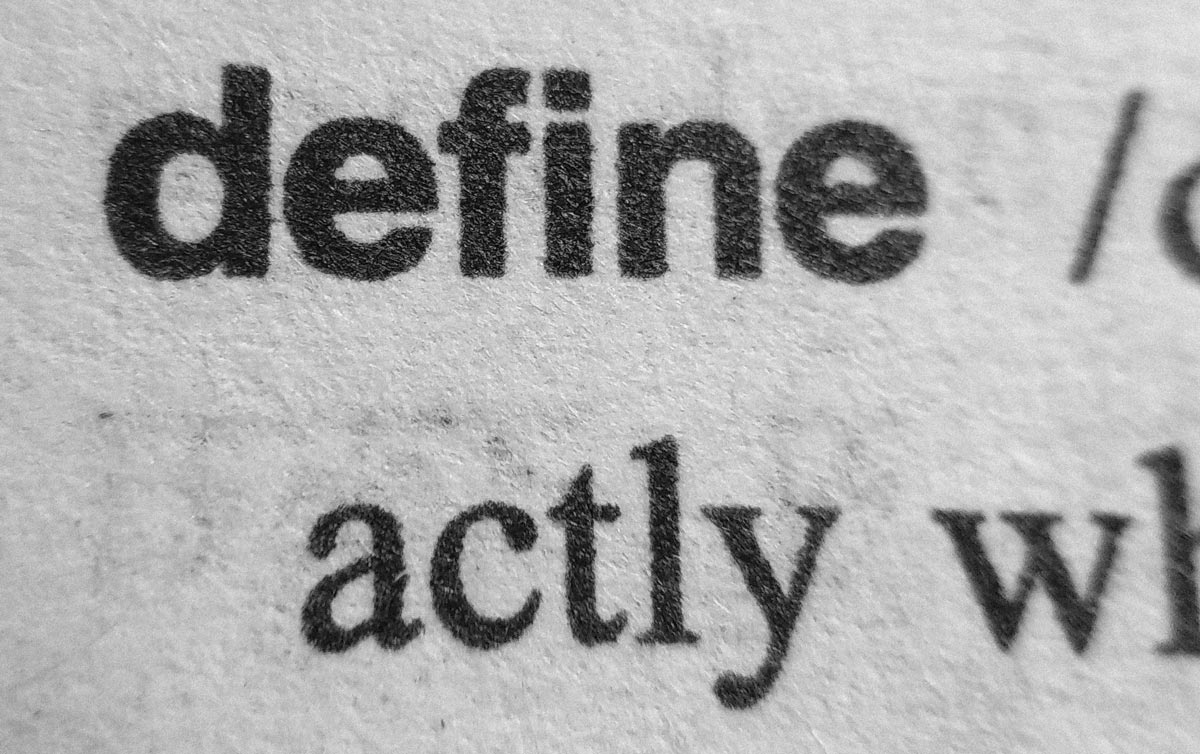Many Bronx residents are not surprised to learn that the northernmost borough of NYC has its own flag, but few are familiar with its history, and perhaps even fewer are aware of the spiritual message and Biblical parallels that can be appreciated from it.
Written by: Pastor Joel

Many Bronx residents are not surprised to learn that the northernmost borough of NYC has its own flag, but few are familiar with its history, and perhaps even fewer are aware of the spiritual message and Biblical parallels that can be appreciated from it.
As can be seen in the picture above, the Bronx flag has three horizontal bands: orange, white, and blue, which parallel the Dutch flag.(1) Apparently, the flag was adapted by the Bronx officially in 1912. The colors were chosen to honor the Dutch heritage of NYC. The image in the center is the Bronck family arms in honor of Jonas Bronck. The Bronck family arms is a shield on which there is a picture of the face of the sun and sun rays rising from the sea, which are supposed to signify peace, liberty, and commerce. Atop the shield is a bald eagle, the national emblem of the USA, facing eastward as a symbol of the hope of the New World while acknowledging the heritage of the Old World. The shield is surrounded by a laurel wreath which bespeaks of honor and fame.(2)
One of the most interesting aspects of the flag is the motto of the Bronx borough which appears at the bottom: Ne Cede Malis, a Latin phrase which means, “Yield not to evil.” It is unclear to this author how or why exactly this phrase was chosen to be the Bronx motto, but, regardless, the motto is a truth well-worth obeying and is based on a concept that runs throughout all of Scripture.
Evil is first mentioned in Genesis chapter two where the LORD God admonishes the man not to eat of the tree of the knowledge of good and evil.(3) From the beginning of creation, man was not to yield to evil, and because of his failure to practice this truth mankind has been plunged into spiritual darkness and ruin for six thousand years.
The book of Genesis (and of course the entire Biblical narrative) continues this record of the successes and failures of various individuals resisting evil in its numerous forms. Some of the patriarchs yield to evil at various points (Abraham in his relation to his wife Sarah, Jacob in his relation to his brother Esau), while others, such as Joseph, stand tall as all time great examples of faithful living under the duress of temptation.(4)
The kings of Israel provide numerous case studies of the principle of Ne Cede Malis. Though often David’s failures to resist evil are what come to people’s minds when they think of him, the sweet psalmist of Israel nonetheless did not yield to temptation on numerous instances. One notable example would be the event recorded in I Samuel 26:8-11. Here, David has the opportunity to take Saul’s life from him at an opportune moment, but he resists the temptation for revenge, and instead leaves the matter in God’s hand.(5)
Furthermore, David most likely penned Psalm one, the locus classicus in Scripture on the blessed life of the one who yields not to evil. The ungodly counsel, the sinful way, and the scornful seat are all evils to be avoided if a man is intent on procuring a happy life. David knew this first hand and wrote to admonish others to follow his example.
One of the biblical passages that sounds most like a direct inspiration for Ne Cede Malis is Proverbs 1:10-19.(6) Here, King Solomon gives his son principles for not yielding to the many evils that surrounded him. Prerequisites to escaping temptation and not yielding to evil include fearing God (1:7) and honoring your parents (1:8-9). The temptations include lust and deception (1:11-12) as well as covetousness and the love of money (1:13-19). The path of escaping murder and the love of money involves taking a different path through God-honoring discipline and self-restraint (1:15).
More wise counsel from Solomon that coincides with the theme of Ne Cede Malis is found in Proverbs 7:1-27. Herein, Solomon details the methodology of the strange woman, perhaps from personal experience(7), and in graphic detail he illustrates the consequences of yielding to her evils. The characteristics of the strange woman are flattering words (7:5), being out at night (7:9)(8), wearing harlot’s attire (7:10), subtlety (7:10), loudness (7:11), stubbornness (7:11), constantly seeking to be out and about (7:11-12), impudence (7:13), hypocrisy and religious talk (7:14), materialism (7:16-17), cheating (7:18-19), fair speech (7:21), and an ulterior motive (7:21).
Yielding to the evils of the strange woman results in having one’s lack of discernment exposed (7:7), looking foolish (7:22), losing one’s life (7:23), going astray (7:25), being wounded and slain (7:26), and ending up in hell (7:27).
Other admonitions in Proverbs that express the sentiment of Ne Cede Malis are “depart from evil” (3:7), “go not in the way of evil men” (4:14), “remove thy foot from evil” (4:27), “it is an abomination to fools to depart from evil” (13:19), “a wise man feareth, and departeth from evil” (14:16), “by the fear of the LORD men depart from evil” (16:16), “the highway of the upright is to depart from evil” (16:17), “an ungodly man diggeth up evil” (16:27), “a prudent man forseeth the evil and hideth himself” (22:3 and 27:12), “be not thou envious against evil men” (24:1), among other such sayings.
In much the same way as the OT, the NT is filled with the concept of Ne Cede Malis. The Lord’s model prayer contains the plea that God “deliver us from evil” (Matt. 6:13). Christ admonished His own disciples to, “watch and pray, that ye enter not into temptation” (Matt. 26:41). He averred that, “when thine eye is evil, thy body also is full of darkness” (Luke 11:34).
The Apostle Paul admonished church members to “abhor that which is evil, cleave to that which is good” (Rom. 12:9), to “be not overcome with evil, but overcome evil with good” (Rom. 12:21), and to “have no fellowship with the unfruitful works of darkness, but rather reprove them” (Eph. 5:11).
The Apostle James told his readers to “resist the devil” (James 4:7), for certainly to stand against evil involves resisting the evil one himself. The Apostle Peter gave a similar exhortation in I Peter 5:8-9.
One potentially curious passage is Matthew 5:39, which perhaps could seem to contradict the sentiment of Ne Cede Malis. In context, the Lord is clearly teaching that the disciple of Christ is not to take matters of revenge, or of any expression of self-will, into his own hands. The evil not to be resisted in Matthew 5:39 is not the evil of Satan or the way of the world, but of personal offense and abuse brought about through one’s being a disciple of Christ.(5)
Imagine if residents of the Bronx began living in a way that exemplified the teaching of the Bronx motto, Ne Cede Malis. Violence and bloodshed would be seen as evils to be resisted. Temptation to immorality would be resisted. Thievery, sorcery i.e. drug abuse, drunkenness, idolatry and a whole host of other vices that undermine the moral character of our borough would be avoided.
At Commonwealth Community Baptist Church, we exhort our members and our community to follow the admonition of our motto here in the Bronx. Yield not to evil. Ne Cede Malis.
May God help us not to yield to evil, and may He be glorified.
Fin
(1) This is referred to as “the Prinsenvlag.”
(2) Much of this information is from Wikipedia, etc.
(3) Cf. Genesis 2:17
(4) Genesis 39:8 provides a great example of not yielding to temptation wherein it is said of Joseph, “but he refused,” when pressed upon by Potipher’s wife to engage in sin.
(5) Commenting on Matthew 5:39, Matthew Henry observes, “Three things our Saviour specifies, to show that Christians must patiently yield to those who bear hard upon them, rather than contend: and these include others. (1) A blow on the cheek, which is an injury to me in my body… (2) The loss of a coat, which is a wrong to me in my estate… (3) The going a mile by constraint, which is a wrong to me in my liberty.” Matthew Henry, Matthew Henry’s Commentary on the Whole Bible, Vo. 5 (Peabody, MA: Hendrickson Publishers, 1991 reprint), pp. 52-53.
Read more blogs written by Pastor Joel!

Our church is known as the Commonwealth Community Baptist Church of the Bronx. Sometimes people will refer to our church simply as “Commonwealth.”

As everyone in our church knows, this past Christmas season we completed a detailed study of I Timothy 3:16.